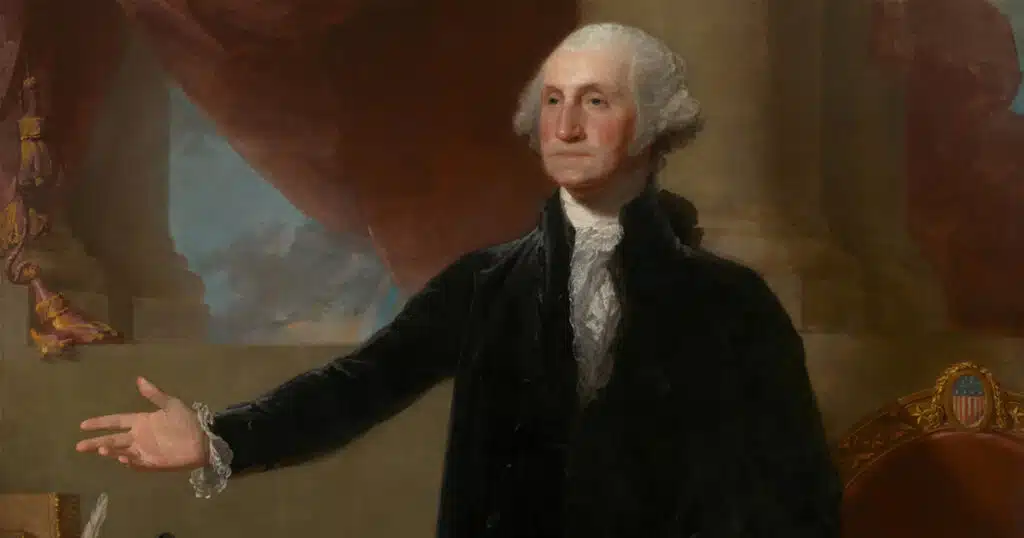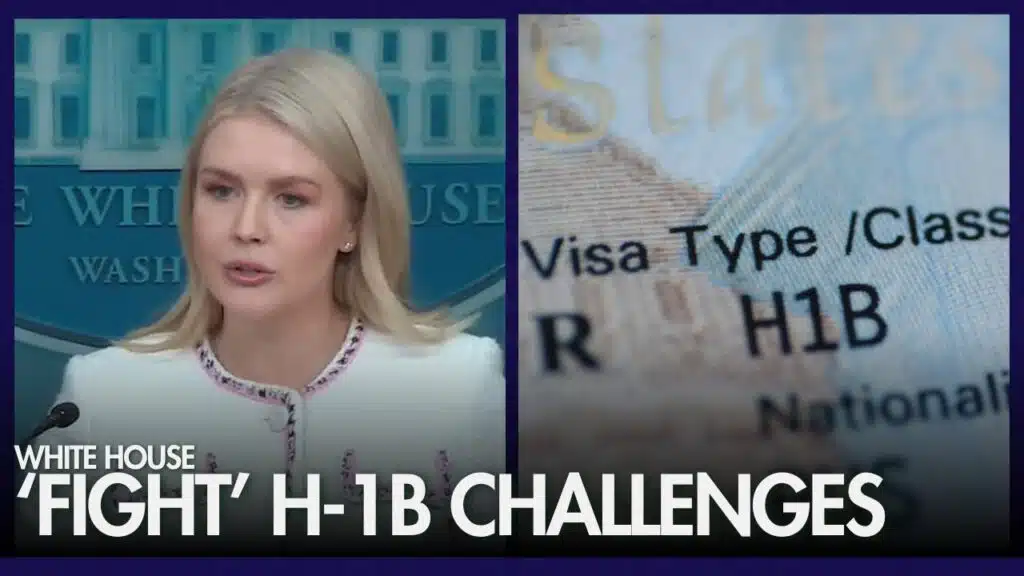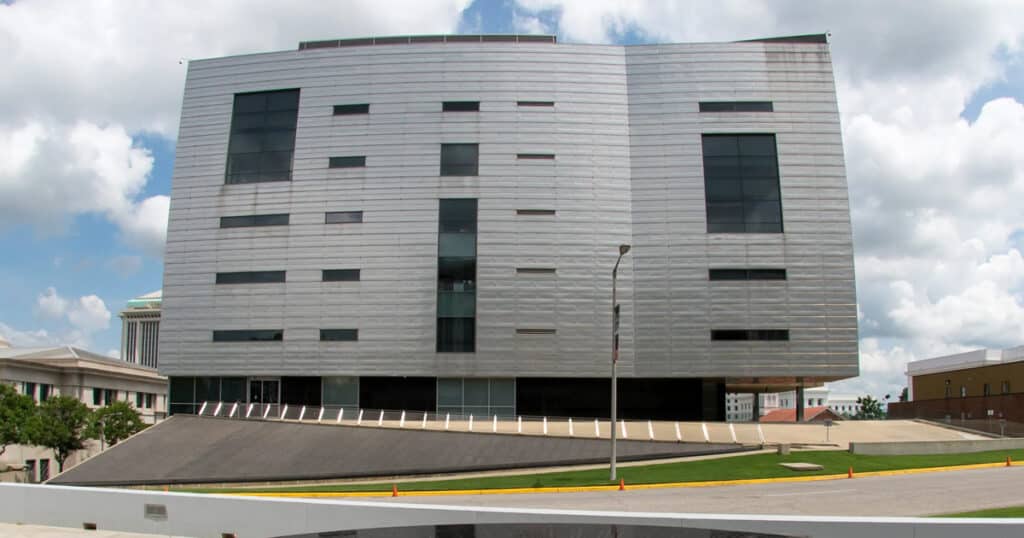
Election Integrity Stakes Grow for Virginia, Now a ‘Tossup’ State
Recent polling suggests that Virginia could prove unusually competitive in the November election pitting President Joe Biden against former President Donald Trump, raising the stakes on the security of elections there.
Virginia Gov. Glenn Youngkin, a Republican, signed an executive order June 7 directing state agencies to share more data with the Virginia Department of Elections to help determine the eligibility of individual voters.
However, some question whether the governor’s order is sufficient this close to the Nov. 5 election.
Last year, the Virginia Department of Elections released revealing findings on election data. The agency, which the state refers to as “ELECT,” says it addressed voter registration problems in the past year.
“In 2023, the Virginia Department of Elections (ELECT) examined its data-sharing relationship with the Virginia Department of Health (VDH),” Andrea Gaines, external affairs manager for the elections agency, told The Daily Signal in an email. She added:
After ELECT requested a review of all VDH death records going back to 1960, VDH discovered death records that had not been previously shared with ELECT. After additional data analysis by ELECT staff, 18,990 records of registered voters were identified and sent to local registrars for processing.
Last July, the Virginia Department of Elections mailed the U.S. Postal Service’s “national change of address” forms to about 115,656 registered voters who apparently had moved to a different jurisdiction than the one reflected on the voter rolls.
“Approximately 39,437 cancellation request mailers were sent to voters’ out-of-state addresses,” the Department of Elections report says. “As a result of the confirmation mailing process, approximately 172,501 voters were classified as ‘Inactive’ in February 2023 and 88,152 voters were classified as ‘Inactive’ in August 2023. The total number of voters classified as ‘Inactive’ from September 1, 2022, to August 31, 2023, were 260,653.”
Youngkin’s executive order directs the state Department of Elections to provide “lists of individuals who voted in primaries and elections, where available, to and from other states.”
This, the governor’s order says, will “identify duplicate registrations, voters who no longer reside in the commonwealth, and other persons who are no longer entitled to be registered, to maintain overall accuracy of the voter registration system.”
But Virginia is just three months away from early voting, so the timeline for implementation should be expedited, according to a report from The Heritage Foundation’s Oversight Project.
“The American people deserve transparency on elections, election data, and whether or not illegal aliens are registering to vote at the state level,” Colin Aamot, an investigator for Heritage’s Oversight Project, told The Daily Signal.
“It’s 2024. It’s beyond time for states to get their act together without further excuses towards cleaning voter rolls of ineligible voters,” Aamot said. “Further, the federal government has become an impediment, not a transparent partner, in sharing citizenship data with the states in order to facilitate the removal of ineligible voters from voter rolls.”
The news site RealClearPolitics now classifies Virginia as a “tossup” between Biden and Trump, despite the state’s reputation as reliably Democrat-leaning in presidential elections since 2008.
An Oversight Project issue brief contends that Youngkin’s executive order came too late and should be expedited. It says, in part:
Timeliness: with early voting approximately 3 months away, this effort is too late, or at best has too long a timeframe for it to make a difference and impact the upcoming election cycle. None of the points addressed are new, and such an EO [executive order] could/should have been executed long before June 2024. Consider rescheduling of the timelines (expediting) for compliance to enable reform in this election cycle.
Youngkin’s order also calls for creating an Interagency Data Review Work Group. Its purpose would be “to examine and make recommendations regarding the quality, accuracy, sharing, and security of commonwealth data provided to the Department of Elections for use in the existing Voter Election Information Registration System in support of conversion to the new statewide voter registration system scheduled for implementation in mid-2025.”
To achieve more accurate voter rolls, the work group will include representatives of the state’s Health, Motor Vehicles, and Elections departments, as well as Virginia State Police.
“The interagency working group created by Gov. Youngkin’s executive order is currently working to strengthen Virginia’s voter rolls and ensure better data accuracy, while safeguarding Virginians’ confidential data,” Youngkin press secretary Christian Martinez told The Daily Signal.
In a public statement on his order, Youngkin said: “As we transition to a new statewide voter registration system, it is imperative that every state agency provides accurate and valid data. This executive order continues our improvements to list maintenance processes, providing a reliable election system for voters.”
Virginia’s work group should include a “citizen participant” who isn’t affiliated with any party or organization, the Oversight Project’s brief says, also contending that all the group’s sessions should be “public meetings.”
Virginia was among nine states to withdraw last year from the Electronic Registration Information Center, a coalition of states established in 2012 to cross-check data and avoid duplicate voter registrations. States that withdrew noted that the system didn’t flag noncitizens and shared voter data with third-party organizations.
Virginia has a score of 63 on The Heritage Foundation’s Election Integrity Scorecard, achieving the rank of 23 in the top half of states.
Virginia ranks high for accuracy of voter registration, for reasons that include state election officials running data comparisons between the statewide voter registration list and the DMV; running data comparisons between that list and Social Security Administration death records; using the U.S. Postal Service system to find voters who have moved from registered addresses; and ensuring that voter registration forms ask registrants to identify their previous registered address.
A report last year from election experts at The Heritage Foundation and Public Interest Legal Foundation said the Electronic Registration Information Center should reform itself for states still participating in the coalition. Their report also called for states that departed ERIC either to start their own agreements for data sharing with other states or begin an alternative national group free of partisan politics.
“These changes must also ensure that ERIC provides more accurate information to member states, attracts additional member states, bolsters participating states’ confidence in its work, eliminates unlawful actions, and prevents partisanship to guarantee that it functions at the highest standard to ensure election integrity,” says the April 2023 report, authored by Hans von Spakovsky, senior legal fellow at Heritage, and J. Christian Adams, president of Public Interest Legal Foundation.
“Otherwise,” the report says, “state election officials need to consider forming an alternative organization that accomplishes these objectives without ERIC’s defects, which will require financial capital, development time, and a dedicated commitment from state officials.”



